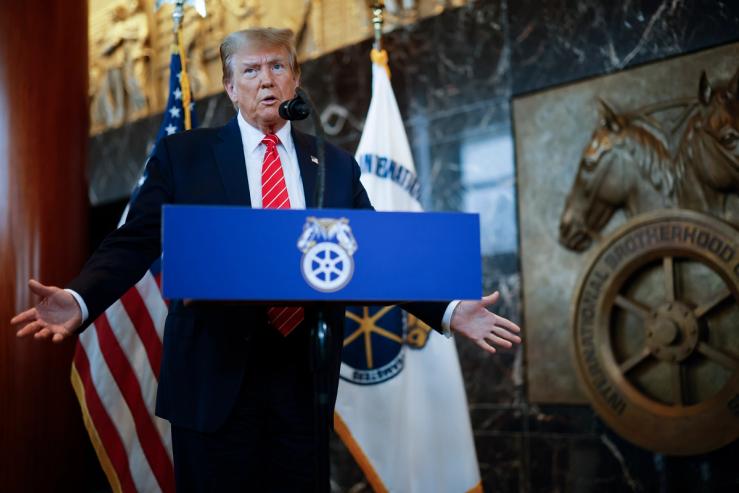The News
Former President Donald Trump is not immune from prosecution for alleged crimes committed during his presidency to subvert the 2020 election, a federal appeals court unanimously ruled Tuesday.
“For the purpose of this criminal case, former President Trump has become citizen Trump, with all of the defenses of any other criminal defendant,” the court wrote. “But any executive immunity that may have protected him while he served as President no longer protects him against this prosecution.”
Presidential immunity has been Trump’s key defense in the federal election subversion case special counsel Jack Smith brought against him. The former president has long argued that he should be shielded from prosecution because the conduct in question was part of his official duties as president. A sitting president cannot be prosecuted, the Justice Department has established, but Trump tried to argue that a former president couldn’t be either.
In its ruling, the court said that Trump’s “stance would collapse our system of separated powers by placing the President beyond the reach of all three Branches,” adding, “We cannot accept that the office of the Presidency places its former occupants above the law for all time thereafter.”
In this article:
The View From Trump World
Trump and his orbit immediately denounced the ruling, saying it will open the door to partisan legal battles every time a president leaves office. Trump will appeal the ruling, his spokesperson told AFP.
The former president called it “A Nation-destroying ruling” in a post on Truth Social, saying the decision will “become a Political Weapon used for Election Interference” if not overturned.
“A President of the United States must have Full Immunity in order to properly function and do what has to be done for the good of our Country,” he posted.
His spokesperson Steven Cheung echoed the sentiment, telling AFP that “If immunity is not granted to a president, every future president who leaves office will be immediately indicted by the opposing party.”
In an X post, the former president’s son, Donald Trump Jr., said it was time for the U.S. Supreme Court to weigh in on the decision, adding that without immunity, presidents will “be incapable of action for fear of future partisan reprisal.”
Know More
Trump has previously argued that because he was acquitted of inciting the Jan. 6 insurrection by the Senate, trying him in federal court would be double jeopardy.
That argument directly contradicts what he said during his 2021 impeachment trial, when his lawyers argued that Trump should be tried by the criminal justice system, not Congress, since he was out of office at the time of the trial. Several senators cited that reasoning when they voted against impeaching him for Jan. 6.
In a hearing on the immunity issue last month, Trump threatened chaos if the criminal charges against him hurt his chances in the presidential election. He has frequently claimed, without evidence, that he was being prosecuted because he was leading President Joe Biden in the polls.
“I think they feel this is the way they’re going to try and win, and that’s not the way it goes,” Trump said at the time. “It’ll be bedlam in the country. It’s a very bad thing. It’s a very bad precedent. As we said, it’s the opening of a Pandora’s box.”
The D.C. circuit court ruling does not apply to other jurisdictions where Trump is accused of a crime. He’s facing four simultaneous criminal prosecutions, and has made similar presidential immunity claims in one other case where the conduct in question happened during his presidency.
The court’s ruling comes two days before the U.S. Supreme Court is set to hear arguments on whether the former president should be kept off the ballots in the 2024 Republican primary.


